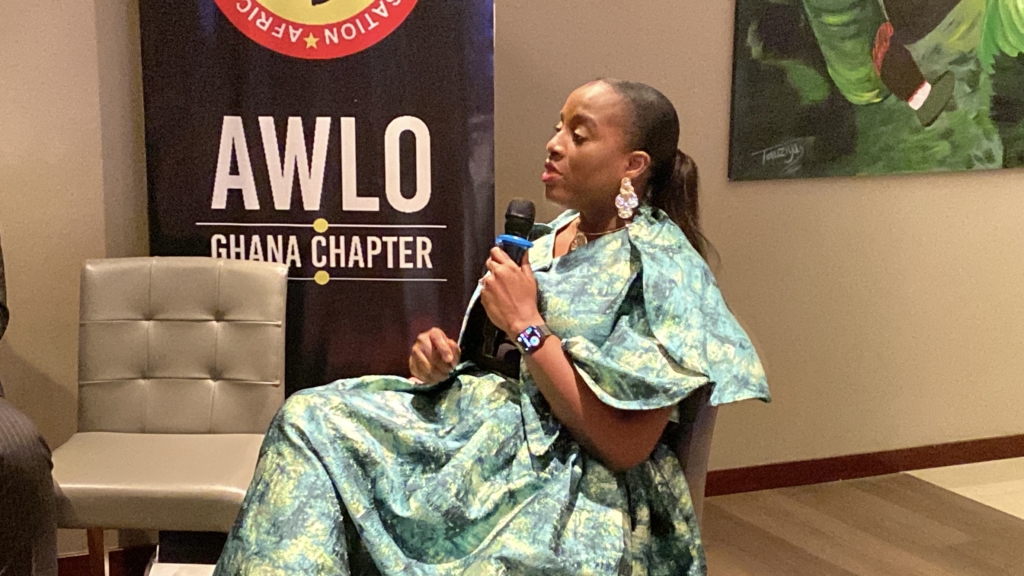The Chief Finance Officer of MTN Ghana, Antoinnette Kwofie, has called for a stronger shift towards digital migration among women-led small and medium enterprises (SMEs) to enable their growth in regional and global markets.
According to Ms. Kwofie, empowering women-owned businesses through digital tools and platforms is crucial for Africa’s economic growth.
“You can’t ignore SMEs if you want to do well as a business in this country and across the continent,” she said.
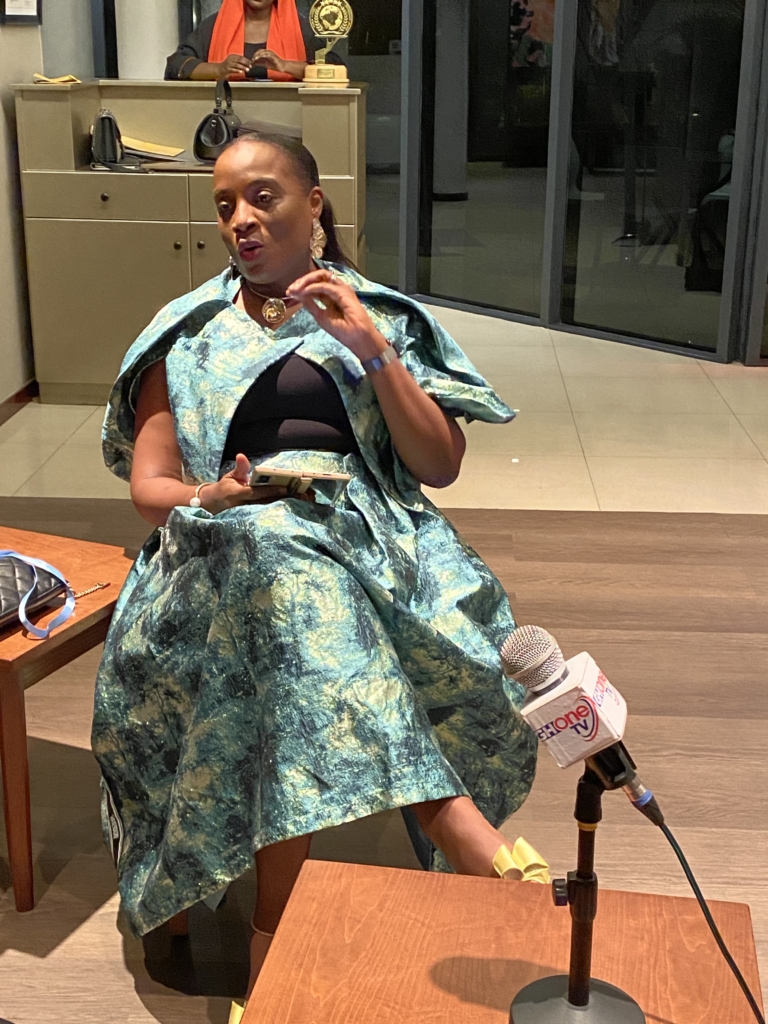
“World Bank reports says that more than 85 per cent of business across the continent are SMEs based. And about half of this belong to women and so we must necessarily target this group of women and all SMEs if we are going to grow as a continent.”
She was speaking at the inaugural African Women in Leadership Organisation (AWLO) Ghana Chapter Impact Dinner, held on Sunday, April 27 at the GrillRoom in Accra.
She noted that although women dominate SME ownership, digital adoption among them remains low, limiting their ability to scale.
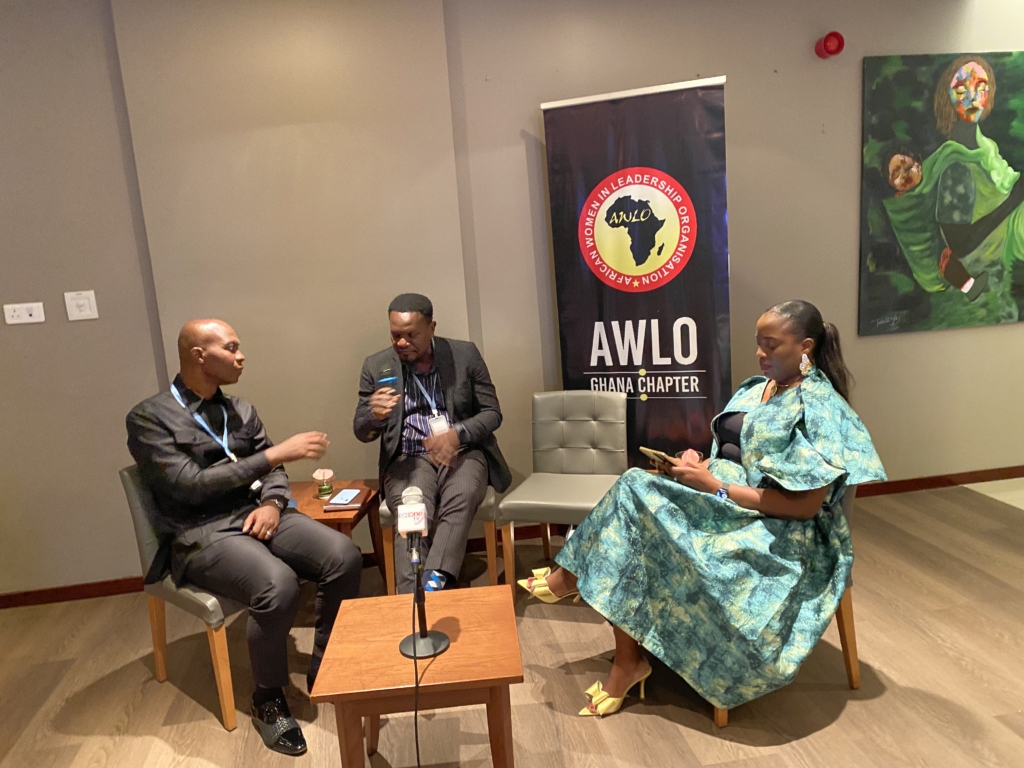
At MTN, recently, we just launched a product which was targeted at women owned-SMEs and it’s because we are looking to see how to enable these women to grow in skills,” she revealed.
“If you look at population in Africa, more than 50 per cent are women and the SMEs, more than 50 per cent are women and yet when you look at digital access in this group of people, they are relatively much lower than their male counterparts.”
Ms. Kwofie challenged women entrepreneurs to move beyond selling through WhatsApp and Instagram and fully integrate e-commerce into their business models.
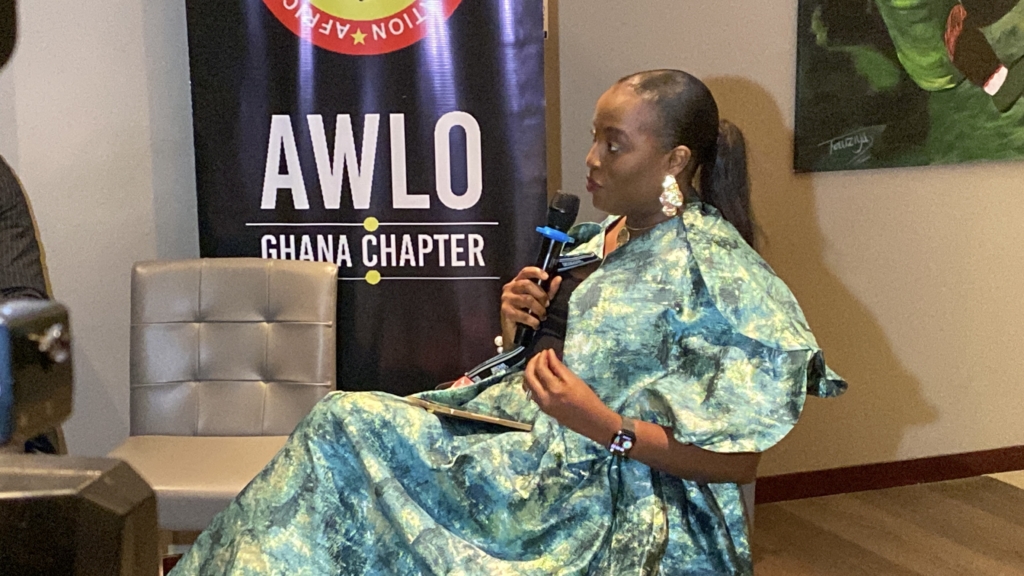
”If you read reports, you will realise that in someway, somehow there’s an even adoption of digital platforms between women and men.
“In the last few years, since 2014, you will see that in Africa, online shopping grows by about 18 to 20% on an annual basis. And women, actually, women-led SMEs, form a big part of that. However, you realise that a lot of them are in the marketplace, but they do not necessarily use e-commerce. And so even now, a lot of people sell on WhatsApp, on Instagram, and the length of their e-commerce is taking Mobile Money payments. But we need to move beyond that,” she said.
The MTN CFO stated that although concerns like online fraud persist, they should not deter women entrepreneurs from embracing digitalisation.
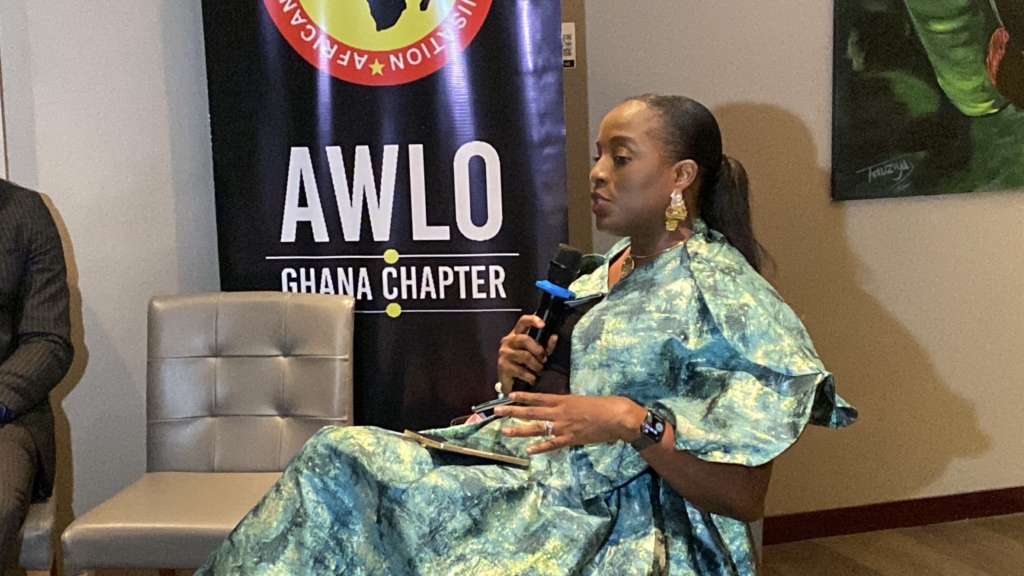
“Sometimes women are more cautious, women are more concerned about, what if I log onto this and I encounter fraud? Yes, e-commerce and digitalisation means that you may encounter fraud, but it’s not a reason not to.”
“We need to do more of digital skills training. We need to do more financial literacy training. We need to actually do some development work, not just with women-led businesses, but primarily with women-led businesses, because we have to find a way to overcome this persistent gender access gap,” Ms Kwofie said.
Touching on internet access, she said affordability remains a barrier for many women, as they often prioritise family needs or business inputs over investing in connectivity.
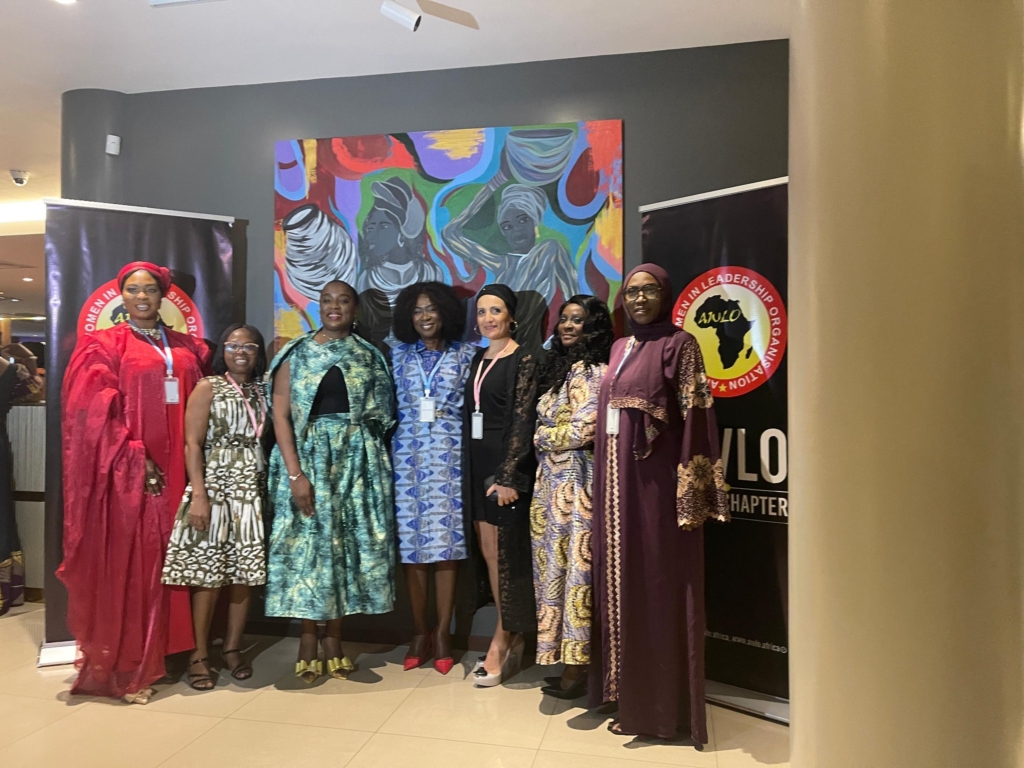
This, she said, affects digital literacy rates and limits the ability of women to expand into new markets across the continent.
On broader trade issues, Ms. Kwofie highlighted the need for financial interoperability across African currencies to support cross-border trade for SMEs.
“In Africa, all our economies are exposed to food currency, and I think that’s why the whole conversation about interoperability starts. Currently, you can’t swap from one African currency to another, you go through the dollar, and that is where the risk comes in.”
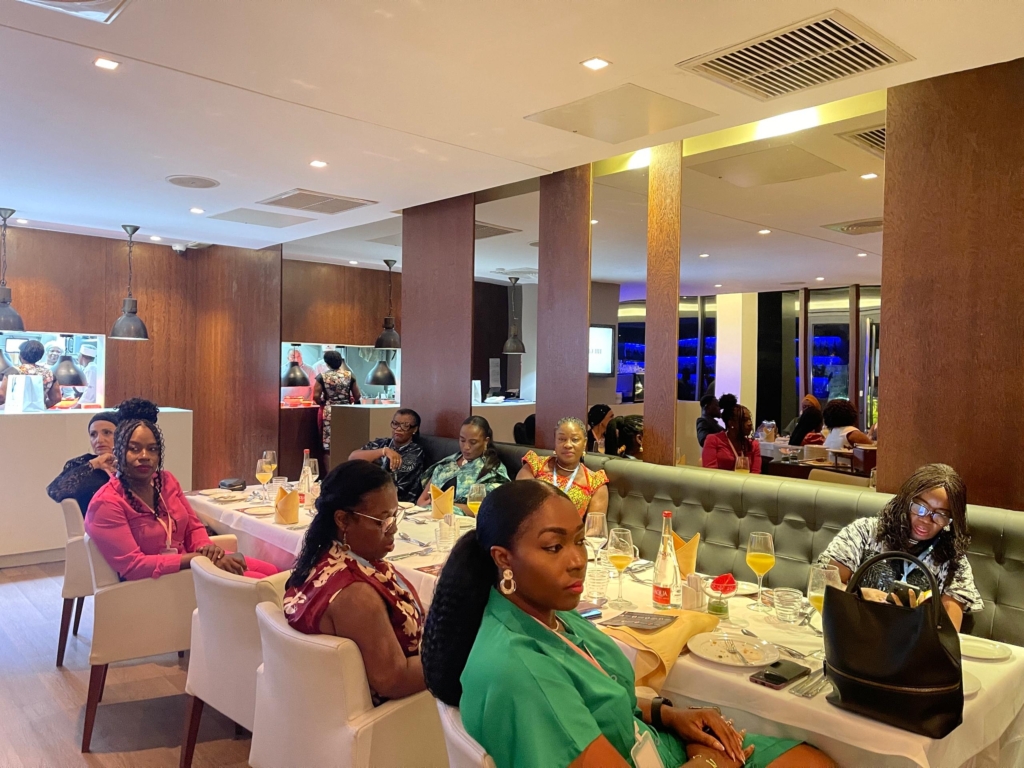
”MTN, Ghana, MTN Nigeria, and some FinTech companies are actually piloting this with just a few customers so that we can pick learnings out of this to help central banks see what framework they can build around this to make this work in our favour.”
However, she noted that overcoming trade imbalances between countries such as Ghana importing more from Nigeria than it exports would require regulatory cooperation and political will under frameworks like the African Continental Free Trade Area (AfCFTA).
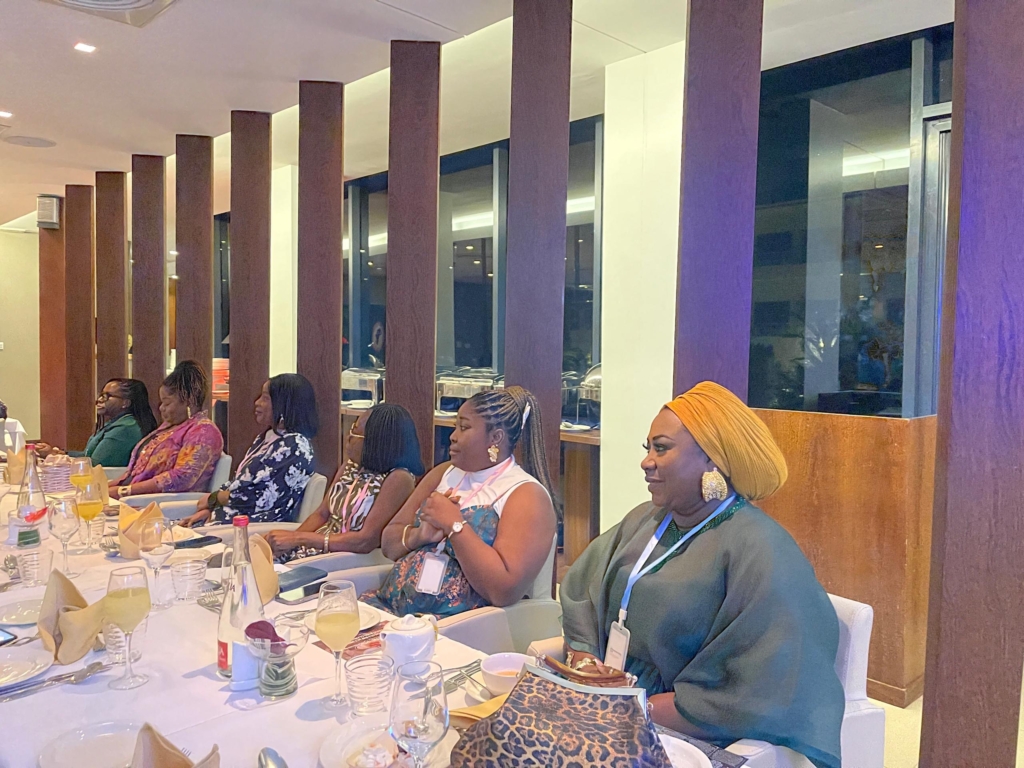
“For as long as we look at things from one country’s point of view only, we will never go as a continent. There’s enough markets on this continent such that we can all go and we can all succeed,” she said.
Ms. Kwofie expressed optimism that through pilots and one bilateral discussion at a time, Africa could gradually achieve stronger regional trade integration over the next decade.

The AWLO Ghana Impact Dinner, was held under the theme “Strutting into Global Markets: Utilizing Traditional and Venture Capital Finance for Business Leverage.”
Delivering the opening address, Vice President of AWLO Ghana and Human Capital Development Specialist, Joyce Sika Twum, described the event as a significant moment for women of vision and purpose.
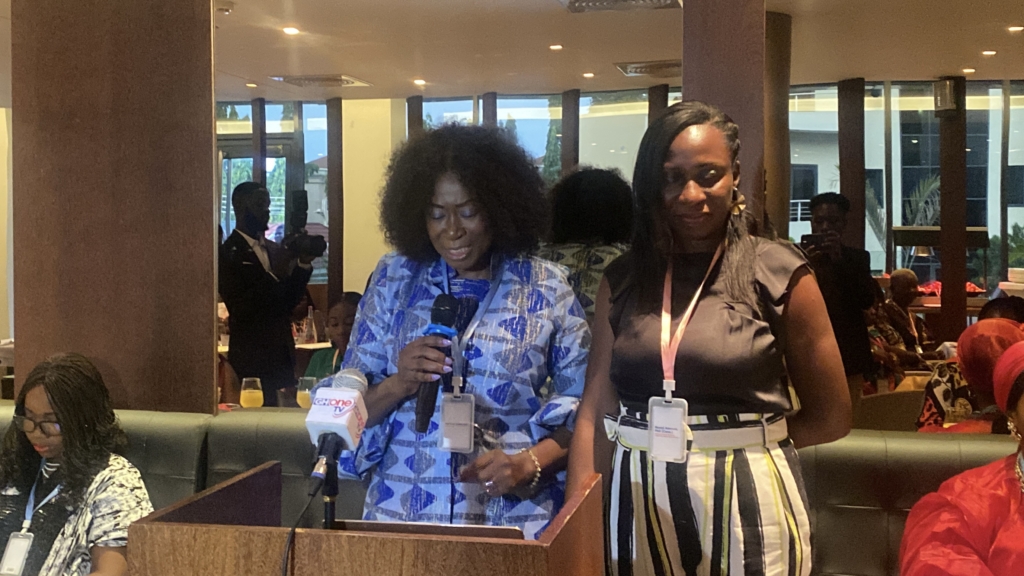
“This is not merely a dinner, but a moment of significance shared amongst women of vision and purpose. This gathering is no coincidence, and I hope you see yourself as destined to be here as a member, an invited guest, and perhaps an eminent panelist at this AWLO impact dinner.
Each of you has exemplified what it means to be a trailblazer, and it’s too much of influence in your respective fields,” Ms. Twum said.
She highlighted AWLO’s mission to empower African women leaders through governance platforms, policy engagement, leadership coaching, and cross-continental networks.
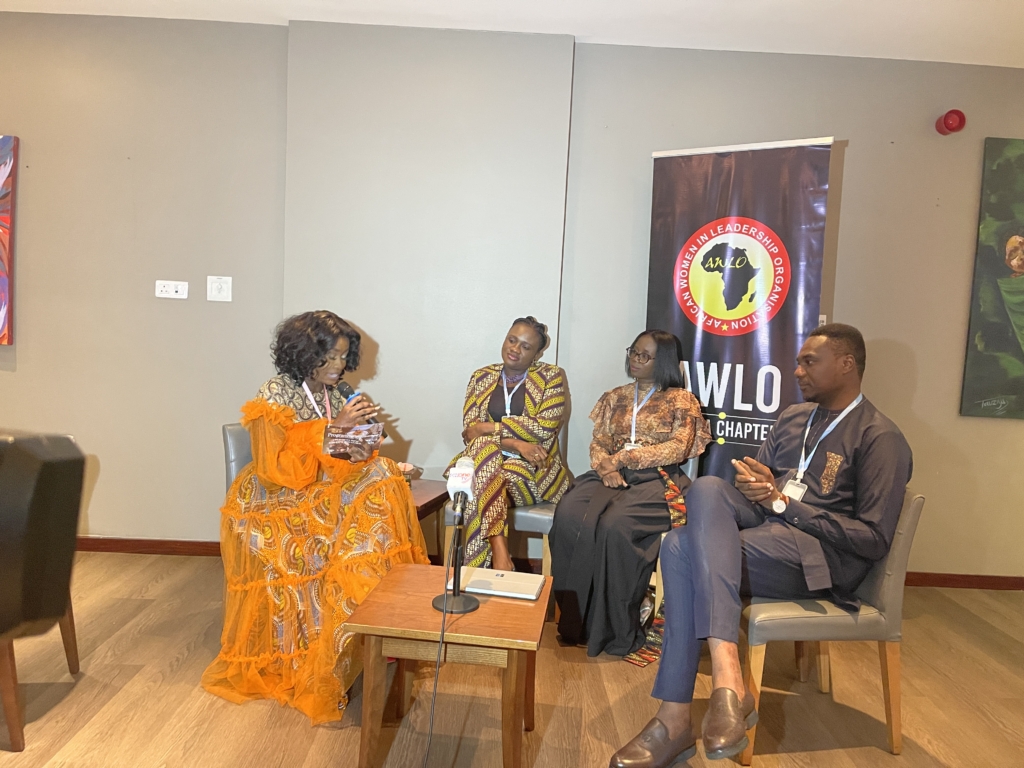
Other speakers at the event included Nana Sika Ahiabor, Manager at the Bank of Ghana’s Banking Supervision Department; Louis Yaw Afful, Group Executive Director of AfCFTA Policy Network; Farouk Khailann, Senior Advisor to the UAE Family Office of Sheikh Al Qassimi; and Angela Akosua Klufio, Head of Investment at RDF Ghana LBG.
DISCLAIMER: The Views, Comments, Opinions, Contributions and Statements made by Readers and Contributors on this platform do not necessarily represent the views or policy of Multimedia Group Limited.


